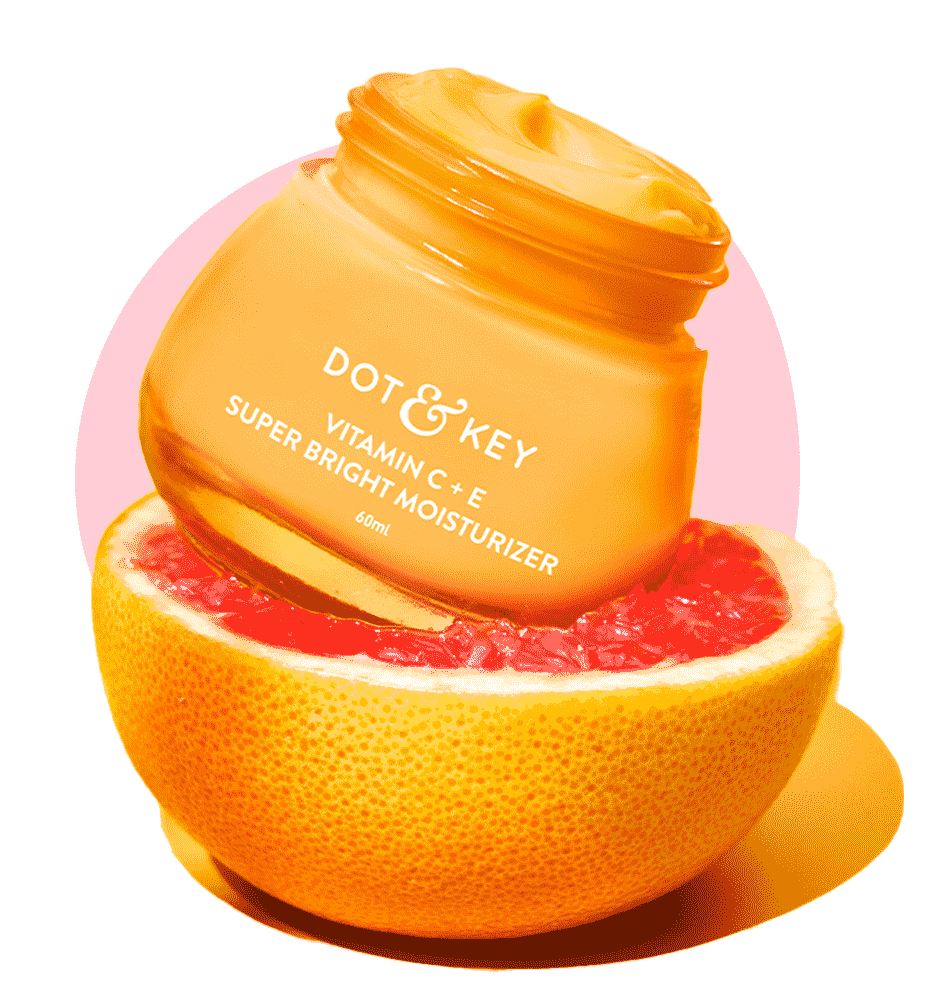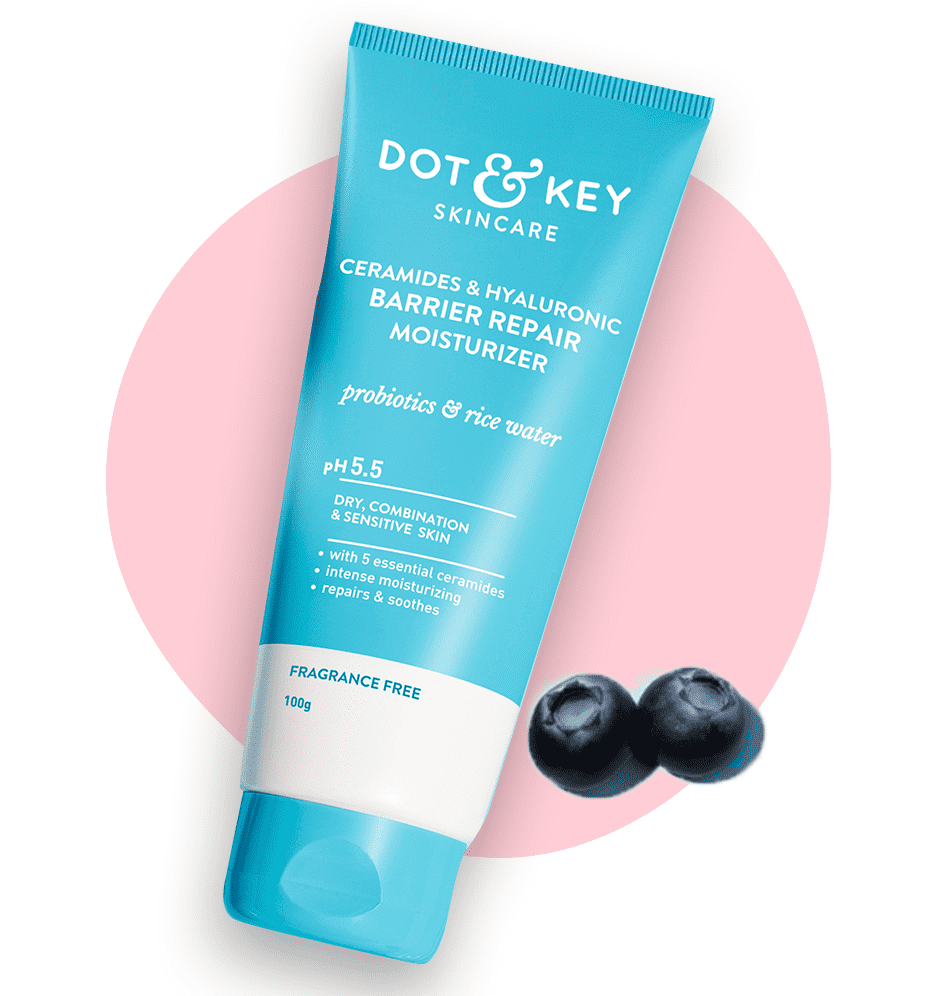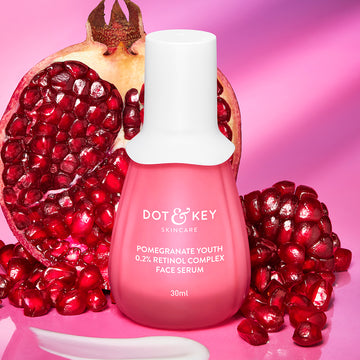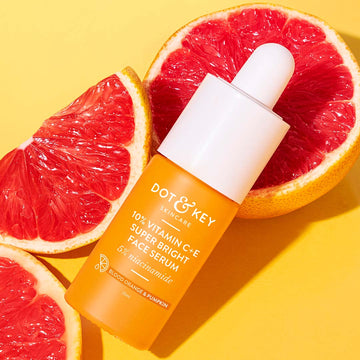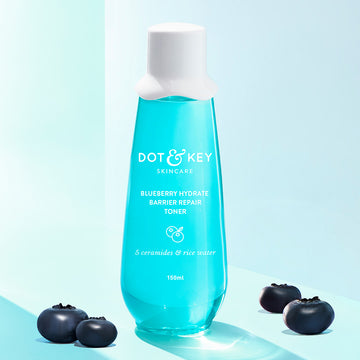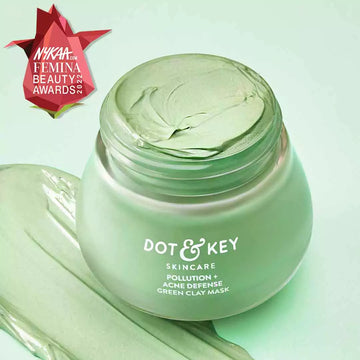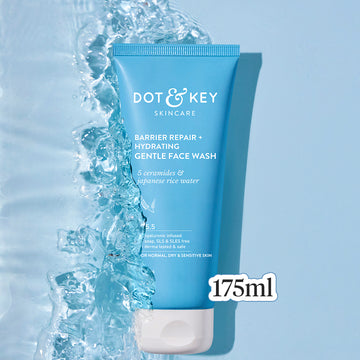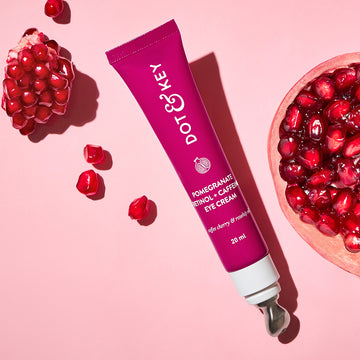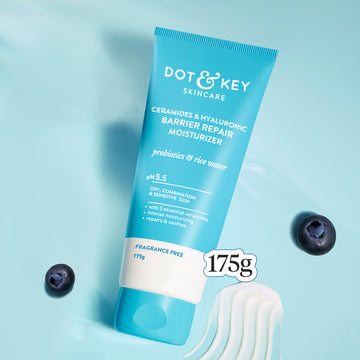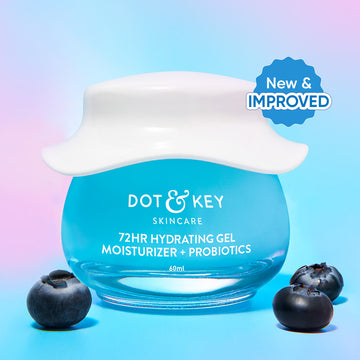
Your 40s are a time of confidence, wisdom, and embracing your natural beauty—but they also bring noticeable skin changes. Fine lines may start making a permanent appearance, your skin tone might seem uneven, and that youthful glow? It may need a little extra boost. While ageing is a natural process influenced by genetics, sun exposure, and lifestyle, the right skincare routine can work wonders in keeping your skin firm, hydrated, and radiant.
The good news? Taking care of your skin doesn’t have to be complicated! In this blog, we’ll walk you through a simple yet effective skincare routine tailored for your 40s, addressing key concerns like hydration, collagen loss, and dullness. Ready to glow at every age? Let’s dive in!
Step-by-Step Skin Care Routine for Your 40s
1. Cleanser (AM & PM)
Cleansing helps remove dirt, oil, makeup, and pollutants that build up on your skin, preventing clogged pores and dullness.
How to Do It: Choose a gentle, hydrating cleanser with a low pH level. In the morning, cleansing prepares your skin for the day ahead, while in the evening, it removes impurities and preps your skin for nighttime treatments. Use lukewarm water and massage the cleanser into your skin for about 30 seconds before rinsing.
Pro Tips:
- Avoid harsh cleansers, as they can strip your skin of natural oils, leading to dryness and irritation.
- Look for ingredients like glycerin or hyaluronic acid, which can help retain moisture, or ceramides, which support the skin barrier.
2. Exfoliation (PM: Twice a Week)
Exfoliating removes dead skin cells, which promotes cell turnover, smooths skin texture, and reveals a brighter, more even complexion.
How to Do It: In your 40s, choose a chemical exfoliant (like AHA or BHA) rather than a physical scrub, as chemical exfoliants tend to be gentler on ageing skin. After cleansing in the evening, apply a small amount to a cotton pad and sweep across the face, avoiding the eye area.
Pro Tips:
- Glycolic acid (an AHA) is great for evening skin tone and enhancing brightness, while salicylic acid (a BHA) can penetrate pores and reduce breakouts
- Start with a lower concentration, especially if you haven’t used chemical exfoliants before, and build up as your skin adjusts.
3. Toner (AM & PM)
A toner balances the skin’s pH level, removes any leftover impurities, and prepares your skin to absorb the next steps in your routine.
How to Do It: After cleansing, apply toner to your skin using a cotton pad or by gently pressing it in with your hands. Toners containing hydrating ingredients can be especially beneficial for mature skin, which tends to become drier with age.
Pro Tips:
- Look for toners with ingredients like rose water, rice water, or hyaluronic acid, which hydrate and soothe.
- Avoid alcohol-based toners, as they can be overly drying and cause irritation.
4. Serum (AM & PM)
Serums are concentrated formulas designed to deliver active ingredients directly to the skin, targeting specific concerns like fine lines, pigmentation, and firmness.
How to Do It: Apply a few drops of serum to clean, dry skin after toning. In the morning, choose an antioxidant serum like vitamin C, which helps protect against environmental stressors. In the evening, opt for retinol or peptides, which support cell turnover and collagen production.
Pro Tips:
- Vitamin C serums protect against free radicals and brighten the skin, helping to reduce the appearance of age spots and uneven skin tone.
- Retinol, often known as the “gold standard” for anti-ageing, encourages skin cell renewal but can be irritating, so start with a lower concentration if you’re new to it.
5. Moisturizer (AM & PM)
Moisturizers hydrate the skin, keeping it plump and reducing the appearance of fine lines. As we age, our skin’s ability to retain moisture decreases, making this step especially important.
How to Do It: Apply a moisturizer after your serum to lock in hydration. Use a lightweight formula in the morning, especially if you wear makeup, and a richer, more nourishing cream at night to help repair the skin’s barrier as you sleep.
Pro Tips:
- Look for ingredients like hyaluronic acid, which attracts moisture, and ceramides or peptides, which strengthen the skin barrier.
- Night creams with squalane or natural oils can help keep the skin hydrated while you sleep, without feeling greasy.
6. Sunscreen (AM)
Sunscreen is essential for preventing further damage from UV rays, which can accelerate ageing, cause hyperpigmentation, and break down collagen.
How to Do It: Apply a broad-spectrum sunscreen with SPF 50+ protection every morning as the last step of your skincare routine. Ensure you cover all exposed areas, including your neck and ears. Reapply every two hours if you’re spending a lot of time outdoors.
Pro Tips:
- Mineral sunscreens (with zinc oxide or titanium dioxide) are often gentler on mature skin and provide immediate protection.
- Don’t skip sunscreen even if you’re indoors; UV rays can penetrate windows and still cause damage.
7. Anti-ageing Treatment (PM)
Targeted anti-ageing treatments, like retinoids or peptide-based creams, work overnight to reduce fine lines, firm the skin, and stimulate collagen production.
How to Do It: After cleansing and toning, apply a pea-sized amount of your anti-ageing treatment to the face and neck. Retinoids, a popular anti-ageing ingredient, increase cell turnover but can cause sensitivity, so start by using them every other night.
Pro Tips:
- Peptides are another great anti-ageing option if retinoids are too harsh for your skin. They help improve elasticity and firmness.
- To prevent irritation, follow your treatment with a hydrating moisturizer. You can also use a hydrating serum underneath the treatment to add an extra layer of protection.
8. Eye Cream (PM)
The skin around the eyes is thinner and more prone to dryness and fine lines, making eye creams a helpful addition for mature skin.
How to Do It: After applying your anti-ageing treatment, gently dab a small amount of eye cream around the eye area, focusing on the orbital bone and any crow’s feet. Use your ring finger to tap in the product, as it has a gentle touch.
Pro Tips:
- Choose eye creams with peptides, hyaluronic acid, or caffeine. Peptides can help with firmness, while caffeine can reduce puffiness.
- Avoid heavy formulas in the morning if you plan to wear makeup, as they can cause products to crease or smudge.
Additional Skin Care Tips for Your 40s
While a good skincare routine is essential, your overall lifestyle plays a big role in maintaining youthful, healthy skin. Here are some extra tips to keep your skin glowing in your 40s:
Stay Hydrated
Drinking enough water helps keep your skin plump, hydrated, and elastic. Dehydration can make fine lines and wrinkles appear more pronounced, so aim for at least 8 glasses of water a day.
Healthy Diet
What you eat reflects on your skin! A diet rich in antioxidants, vitamins (like C and E), and healthy fats (from nuts, seeds, and fish) helps protect your skin from premature ageing and boosts collagen production.
Regular Exercise
Staying active improves blood circulation, which delivers oxygen and nutrients to your skin, giving you a natural, healthy glow. Plus, sweating helps flush out toxins, promoting clearer skin.
Avoid Excessive Sun Exposure
The sun is one of the biggest culprits behind premature ageing. Wear SPF 50 daily, use protective clothing, and seek shade whenever possible to prevent fine lines, dark spots, and loss of skin elasticity.
Consider Professional Treatments
If you’re looking to enhance your skincare routine, professional treatments like chemical peels, microdermabrasion, or laser therapy can help address wrinkles, pigmentation, and skin texture for a more youthful look. Consult a dermatologist to find the best option for your skin.
products
Conclusion
Your 40s are a time to embrace confidence and care for your skin with a routine that nourishes, protects, and restores its natural glow. By following a consistent skincare regimen, staying hydrated, eating well, and considering professional treatments when needed, you can maintain healthy, radiant skin for years to come. Remember, ageing is a beautiful journey—your skincare should make you feel just as beautiful along the way!
FAQs
1. When should I start using anti-ageing products?
It’s best to start in your early 30s, but in your 40s, focus on products with retinol, peptides, and antioxidants to target fine lines and skin firmness.
2. How often should I exfoliate in my 40s?
Exfoliate 1-2 times a week to remove dead skin cells and promote cell turnover without irritating your skin.
3. Are retinol products suitable for all skin types?
Retinol works for most skin types, but start with a lower concentration if you have sensitive skin and gradually increase usage.
4. What are the benefits of using a Vitamin C serum?
Vitamin C brightens skin, reduces dark spots, boosts collagen production, and protects against environmental damage.
5. How can I improve skin firmness and elasticity?
Use products with peptides, retinol, and Vitamin C, stay hydrated, and protect your skin from the sun to improve firmness and elasticity.






